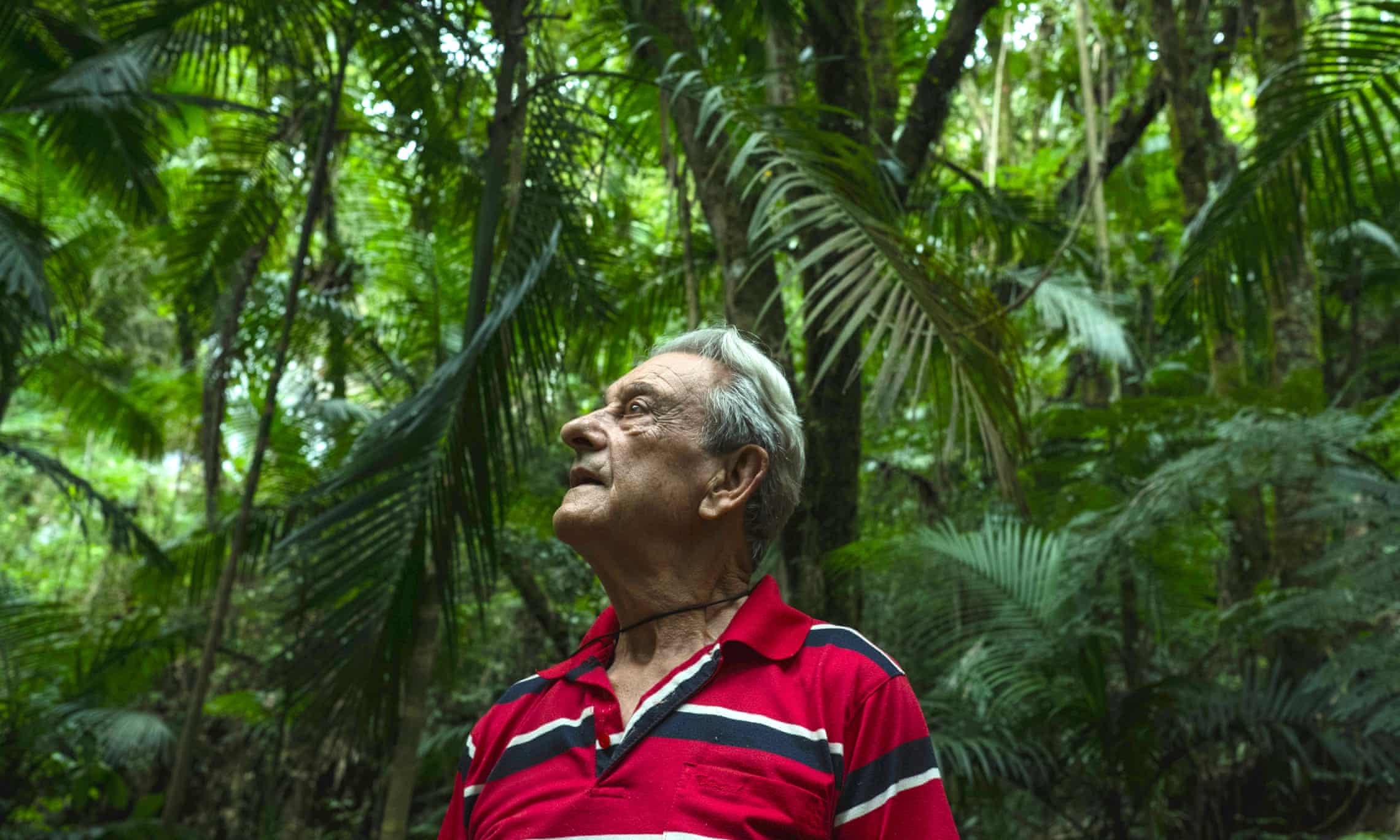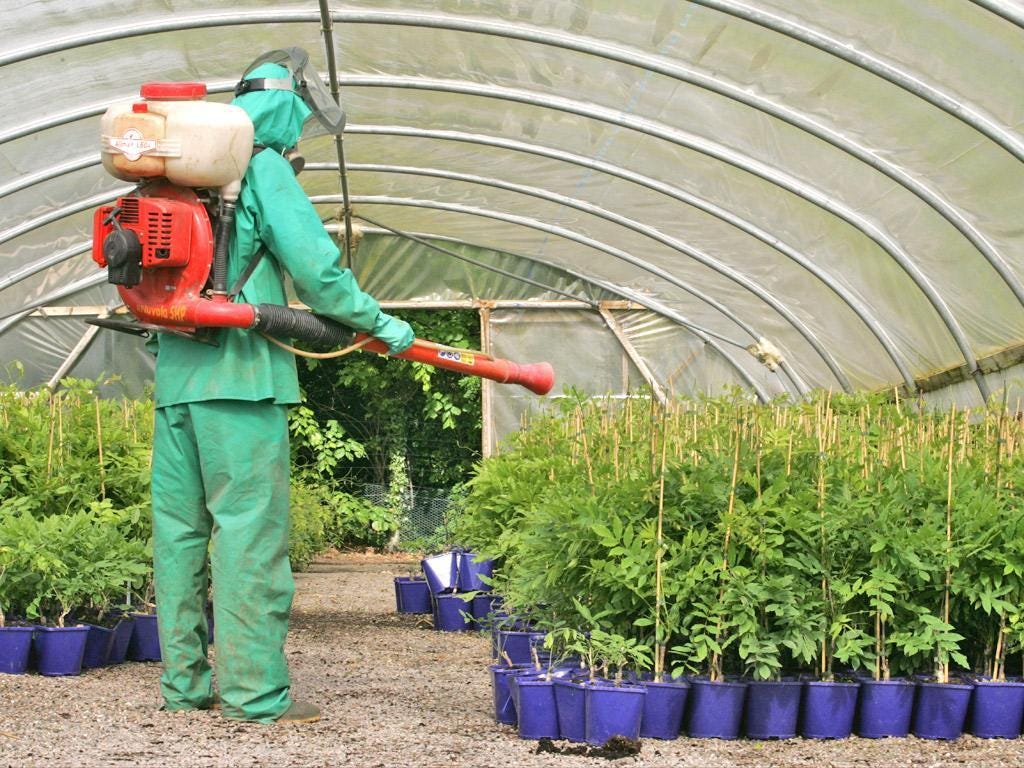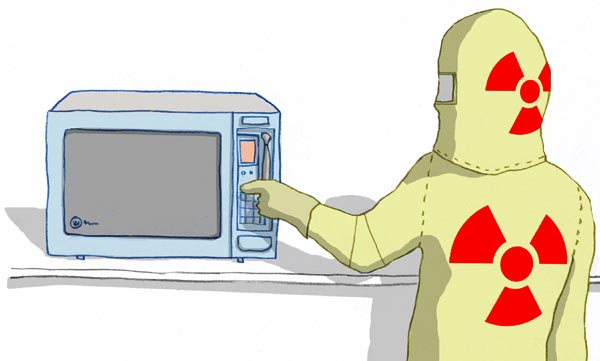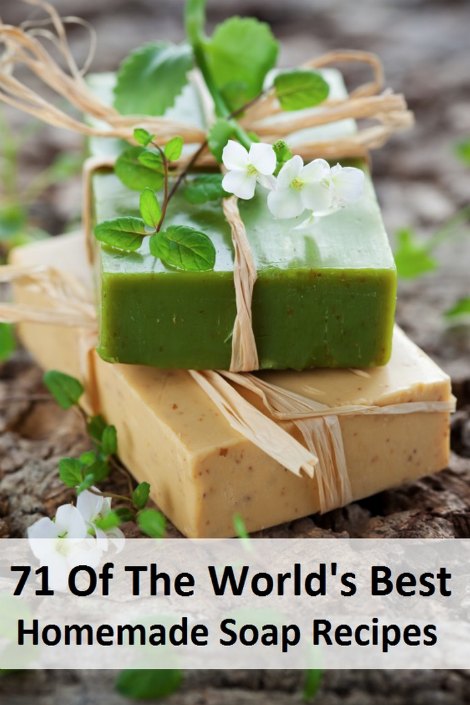Microwave oven are killing your food and sooner or later you too. This is not something from the new age realm. The way microwave warm up the food is by getting the water molecules into a rapid vibration. By violently vibrating the molecule its creating internal friction which results in destruction of the nearby food molecules resulting in unrecognizable for the body structures. This effect is called “radiolytic” and the compounds created have never been seen before the use of microwaves. The long term effect of the radiolytic compounds are not studied, but from experience, unknown molecules are treated by the body as toxins or allergens.
Make your choices….
The man who planted a tree and grew a whole family of forests
As Brazil’s deforestation begins to climb again, one man has spent over 40 years planting a forest of his own

The tough life of a soapmaker …
Well …. its not always a success story hmmm …
I packaged yesterday a nice batch of “Olive Only” and it just popped upto use some vanilla smell before I wrap it up. I used the liquid vanilla I use in cakes, and guess what: the soap became stained like an old dirty disqusting filthy soap made in a slum …. Thank god only on the surface. So, I ground it up, rebatched it and made a “Craftmanns soap” which was dry and ready in a couple of hours!
Second case: I re-bached one soap yesterday and I added too much water so its liquid as a syrup…. I dont think it will ever dry, but I will leave it in its mold for 1 month… Pity really because it was a active charcoal-soap in black and white swirl …
The third fiasco is when I made a soap which instead of water I added coffee in the lye solution and it just refused to trace …. I am not sure if it was the oils (rapeseed) or the coffee … I mixed it with a coconut soap and swirled it in hope to make a caffè latte soap with coffee grounds and coconut shreds, but the dark layer was again like a syrup. Very curious about this one, I will leave it to dry as long as possible. If it wont make it, I will spread it out and leave it to dry, rebatch it and make a new (but not swirled soap, whatever!
Tomorrow is a new day =)
The KOH (kalium-hydroxide) “problem” solved!
 I shared already my concerns for the difficulty finding KOH while NaOH you find so easy… Unfortunately I have only ashes from softwoods so I cant make my own KOH, irritating… So, while I am waiting for my 6kg KOH from Germany, for making soft-soap, and I am not even sure if I am allowed as a private person to imports such things, I found today at a grocery what we call in Norway “avløpsåpner”, a drain-opener. And guess what? Its 40-60% KOH, the rest is water and nothing else!!!
I shared already my concerns for the difficulty finding KOH while NaOH you find so easy… Unfortunately I have only ashes from softwoods so I cant make my own KOH, irritating… So, while I am waiting for my 6kg KOH from Germany, for making soft-soap, and I am not even sure if I am allowed as a private person to imports such things, I found today at a grocery what we call in Norway “avløpsåpner”, a drain-opener. And guess what? Its 40-60% KOH, the rest is water and nothing else!!!
So I ran and made a softsoap with oliveoil and coconutoil , and now its “cooking”, meaning I am spreading up the curing process by making a hot process soap.
This soap is going to be a beautiful shampoo =)
Use Vit E to extend its best before!!
Happy gardening in shade!
http://www.realfarmacy.com/40-edible-plants-will-grow-partial-shade/
Okey! Lets go crazy:
http://www.homemadehomeideas.com/71-of-the-worlds-best-homemade-soap-recipes/
Soap/ detergent prices!
 Nature has no price. But its destruction will have a cost not possible to describe or fix. Same with your health. We have to care to invest in the best and use the best and most ethical (kind) products. That requires a bit of research of both the ingredients and the production of the products we buy… Thankfully we all have internet.
Nature has no price. But its destruction will have a cost not possible to describe or fix. Same with your health. We have to care to invest in the best and use the best and most ethical (kind) products. That requires a bit of research of both the ingredients and the production of the products we buy… Thankfully we all have internet.
I just checked a very well known organic laundry detergents powder the ingredients:
“Oxygen-based bleaching agents,Zeolite, Anionic surfactants, Non-ionic surfactants, Soap, Sodium sulfate, Sodium carbonate, Polypeptide, Bleach activator, Sodium citrate, Sodium disilicate, Water, Sodium carboxymethyl starch, Cellulose gum.”
and this costs for 75 gr 75 NOK
….while my homemade powder with only “water, soap, salt and washing soda” and it costs for 1,6 kg for 100 NOK.
Scary facts about fabric softeners …

Using fabric softeners sounds like a no-brainer. These common laundry products promise soft, fresh-smelling clothes, free of static and wrinkles, along with less stretching, fading and pilling.But in-wash fabric softeners and heat-activated dryer sheets pack a powerful combination of chemicals that can harm your health, damage the environment and pollute the air, both inside and outside your home. EWG recommends skipping fabric softeners entirely. Here are the worst chemicals to watch for in your laundry basket – and what to use instead.
Continue reading “Scary facts about fabric softeners …”Pesticides NOT needed to feed the world

The idea that pesticides are necessary to feed the world’s fast-growing population is “inaccurate and misleading”, a UN report has warned.
The document, which is expected to be presented to the UN Human Rights Council this week, strongly denounced the “aggressive promotion” of pesticides by the industry as experts found the chemicals had “catastrophic impacts on the environment, human health and society as a whole”.
The authors of the report said the impact of pesticides on human health, access to food and the environment have been exacerbated by corporations’ “systematic denial”, “aggressive, unethical marketing tactics” and by having “obstructed reforms and paralysed global pesticide restrictions globally”.





